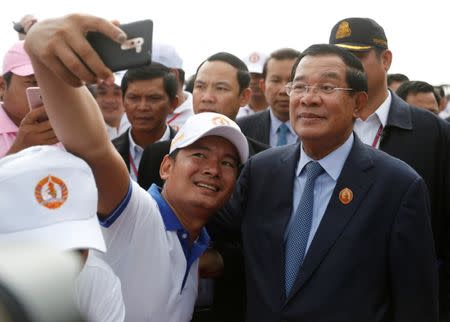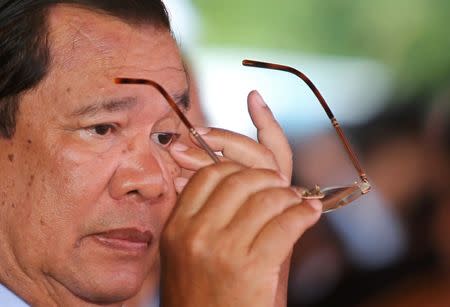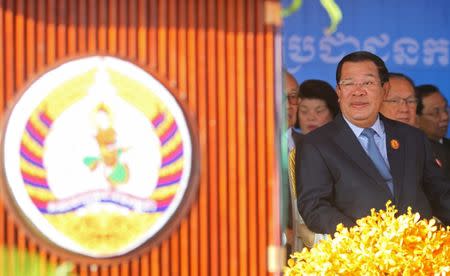Cambodia's Hun Sen orders probe into rights group
PHNOM PENH (Reuters) - Cambodian Prime Minister Hun Sen ordered an investigation on Wednesday into The Situation Room, a consortium of rights groups which criticised local elections this month that handed a victory to Hun Sen's ruling party. Speaking on the 66th anniversary of his ruling Cambodian People's Party (CPP), Hun Sen ordered a probe into the groups which monitored the June 4 commune elections. Cambodia's embattled opposition did well in the local election, which government critics hope will pave the way for an opposition victory to end Hun Sen's 32-year rule in the impoverished country come a general election in 2018. Hun Sen's CPP won 1,156 communes to the opposition Cambodia National Rescue Party's (CNRP) 489, according to official results released on Sunday. Hun Sen has repeatedly said he will hold onto power. Earlier this month he warned of civil war if his party is toppled. "The Interior Ministry must immediately take measures against what they have been doing under the pretext of election monitoring," Hun Sen said, referring to The Situation Room. Members of the Situation Room could not be reached for comment on Wednesday. Opponents accuse Hun Sen, a former Khmer Rouge guerrilla, of unfair manoeuvring to try to keep his three-decade grip on power at local elections in June and a general election next year. Hun Sen on Wednesday proposed an amendment to a law that would make it illegal for convicted politicians to take part in politics, including posting messages of support online, in a further move aimed at straitjacketing the opposition. He singled out former opposition leader Sam Rainsy who lives in France. Rainsy faces a jail term after he was convicted in absentia for posting a fake government pledge to dissolve the Southeast Asian country's border with Vietnam. The Situation Room said in a statement on Sunday that issues including political suppression, lack of an independent judiciary and the intimidation of civil society groups persist, summarizing that election in Cambodia cannot yet "be considered fully free and fair." (Reporting by Prak Chan Thul; Editing by Amy Sawitta Lefevre and Michael Perry)

 Yahoo News
Yahoo News 


